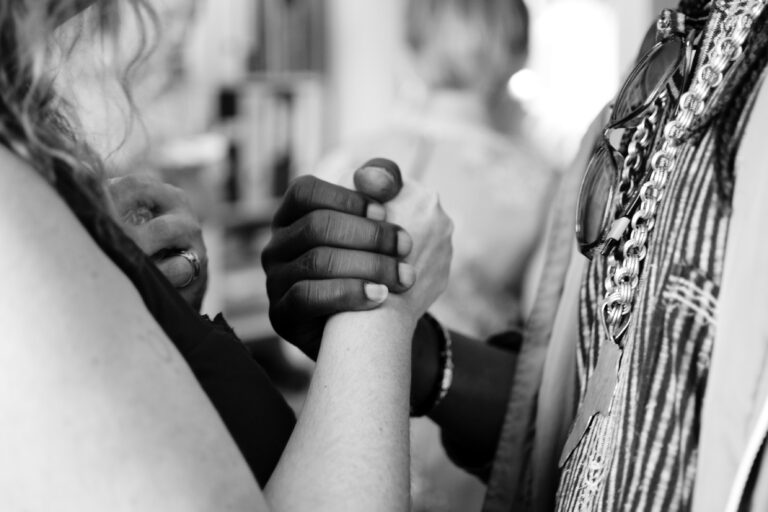
I have been devoting a lot of focus, much like the rest of society, to the marginalized and underrepresented groups at the core of the Diversity, Equity, Inclusion, and Belonging (DEIB) front. But, what about the bystanders or those large groups of people not traditionally the focus of DEIB work?
The answer I’ve found is allyship.
Merriam Webster defines allyship as “the state or condition of being an ally; supportive association with another person or group; or such association with the members of a marginalized or mistreated group to which one does not belong.” Organizational leaders need to focus on creating more allies as they work to rebuild better and more inclusive workplaces.
While many people have not experienced the plight, slights, or discrimination that has been highlighted and called out rightfully so this past year, they still have a role to play in this healing process. They can be allies. Anyone can be an ally. Allies who serve as witnesses, support pillars, resources, and advocates for any of their peers.
Microaggressions
Allies serve a crucial role in a culture riddled with microaggressions. Have you ever witnessed a microaggression and questioned whether the victim even realized the offense? People are resilient. People who have been subjugated to lesser for their whole lives sometimes are numb to the blunt blows society continues to deal them.
If you witness a microaggression, I urge you to speak up, but do so carefully. You need not go directly to the person who committed the offense and mention the wrongdoing. Rather, go to the perpetrator and address the situation respectfully. Make sure your goal in speaking up is to educate, assist and bring people closer together.
The Hypocrisy in “Making something out of nothing”
Who has heard the expression, “Don’t make something out of nothing”? This is essentially a plea to minimize someone’s valid feelings for the sake of sparing controversy. You know, it sounds something like this: “Let’s maintain a good, peaceful image and quiet things down before they become known on a widespread scale.” I can assure you this method is flawed and should rarely, if ever, be the main resort. Suppose you witness a questionable or offensive act against another person, one that seems to go unnoticed by everyone else. In that case, you should reach out to HR or speak to that person privately. You can prevent future behavior like this by doing your part.
Be the Stage Crew
While I am encouraging everyone to step into the role of allyship for their peers, especially the majority, be careful in the role you assume. You do not have a plight, a history, or a story to tell here. However, this moment offers the perfect opportunity to take on a pivotal role behind the scenes.
At the same time, tread carefully, and don’t assume you know the wants and needs of a quieter marginalized voice. Don’t thrust people into the spotlight if it is clear they have no desire to be there.
Now I will move on to my next point.
Listen
Listen. Then listen some more. And listen again. I say it often, but I’ll say it again, and even three times over. Be an extra set of eyes and ears. Don’t flush things out for your own satisfaction. Seek to understand without reopening wounds or discussing sensitive subjects in depth.
Don’t minimize yourself or your own story, but rather use the opportunity to highlight someone who has been quieted. However, this does not apply to people who choose to remain silent. You cannot advocate on their behalf unless they express their consent.
Be Present
Additionally, I urge you to encourage the majority within your organizations to be present and participate. Volunteering to lead an Employee Resource Group (ERG) is a great option. Seek other ways to alleviate the stress and pressure placed on marginalized groups by sharing the responsibility among every group of employees.
Furthermore, as your organization rolls out and ramps up its DEIB efforts, make sure that the responsibility of each initiative isn’t solely dropped on the shoulders of the marginalized.
Educate
Lastly, provide vast learning opportunities for your entire organization to further their education on DEIB issues, history, and statistics. I would even go as far as to say mandate this education throughout your workplace. The vast microaggressions that these marginalized groups experience can be minimized or eliminated by organizations providing in-depth training. By transferring responsibility for education and training to their peers rather than themselves, we’re creating a positive change.
Use Your Power
Using one’s power in the work environment to benefit those at the bottom of the ladder or those who people often overlook is one of the most valuable roles allies can play. If you are at the decision-making table, you should consider including marginalized employees at your table. Consequently, this might mean that you train managers to invite others to speak when they are silent intentionally.
Remember these points as your organization finds the equilibrium, the perfect inclusive environment, within its walls. Work to eliminate microaggressions, divisive behaviors, and unfair responsibilities through allyship. Together, let’s show each other that we are here for one another at work and in our communities.